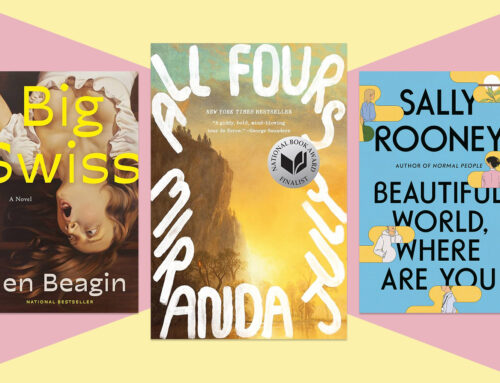By now you must have heard about the international protests sparked by the death of a Black man named George Floyd. His death was inflicted by policemen, a causeless aggression and inhumanity that reminds us that police brutality towards Black people is unfortunately a common practice—brutality that often ends up being fatal, harming Black people with minor to no charges at all. A few weeks prior to George Floyd’s death, Breonna Taylor, a 26-year-old essential worker, was asleep when her home was invaded by police officers, resulting in her being shot 8 times. And for what? The Louisville Metro Police Department investigation revealed that the two suspects they were searching for were already in police custody for selling drugs. None of which had anything to do with Breonna Taylor. These aren’t exceptions, but examples. Racially charged police brutality happens every day, all over the US. And while other countries aren’t innocent in the systematic, racial targeting of black people and people of color by the police, the number of overall deaths caused by police officers in the US is shockingly high. Statistics from 2018 show that US police shot around 1,000 people that year. Meanwhile, in Germany, there were only 11 deaths in the same year and New Zealand only had 1 person killed by the police that year. Though these numbers are made up of all races it is still important to note that black people makeup 13 percent of the American population but account for 23 percent of those shot and killed by police.
It is very important to know these facts as a baseline to understand why so many people have been protesting and voicing their anger towards racially charged police brutality using the “Black Lives Matter” slogan. However, a lack of understanding or acceptance has led many people to retaliate with “All Lives Matter.” All lives matter is an obvious truth, because yes, of course all lives matter, but why are people getting angry when people say “All Lives Matter” in response to “Black Lives Matter”?

Black people have been oppressed, enslaved, and dehumanized like no other race, and the people saying “All Lives Matter” fail to focus on the specific oppression of Black people. And the people using the “All Lives Matter” slogan are not just privileged white people. You often hear people from other ethnic groups saying “All Lives Matter” too—angered that the world is focusing on the fight for Black rights, feeling that their own struggles have been ignored. But even though other POC have experienced racism and probably experience it on a daily basis, it is still a different type of racism, and other minority lives are not at stake in the same way when it comes to police brutality. While no racism is excusable and while you might be a target of racism, the Black experience is very much distinct from other ethnicity groups—an experience rooted in centuries of systemic discrimination—disproportionately affecting Black communities, healthcare, voting rights, and fundamentally, their existence in society.
So when we say Black Lives Matter, we are demanding change for a broken system that was built on an ideology that views black people as less—a system that keeps them from receiving a better education, moving away from impoverished neighborhoods and getting ahead in the workplace. But even those that have overcome all of these barriers still have to fight against the prejudice of being a target for harassment and racial profiling—constantly having to prove their worth and justify it. And many, ultimately, have to live with the reality that they’re not safe, that the officials who protect other lives have failed to protect theirs.
Saying “All Lives Matter” seems to be the easy copout, as a blind eye is given towards the depth of Black struggles and obstacles. In the same way a lot of white people claim “white privilege” doesn’t exist, it seems impossible for some people to come to terms with “Black Lives Matter.” It seems as though the fear of getting something taken away from them is far greater than having to face the reality that some people don’t even have a fraction of their rights and privileges, and that they are part of the problem in failing to recognize their role in the system. These people only started saying “All Lives Matter” when people started demanding equality for black lives. So what does that tell us? Not only does saying “All Lives Matter” or “White Lives Matter” (which there are too many shocking videos and photographs online of people having that tattooed on their skin) discredit the issues and requests of equality coming from Black Lives Matter, it also showcases very clearly that they like it the way it is—maintaining a position of power at the expense of Black lives.
Of course, there are always well-intended folks that mean no harm by saying all lives matter, but they still neglect to see that Black Lives Matter tackles a very specific issue that black people are facing and by no means puts down other lives. Good intention is neither useful nor does it help gain a new understanding and perspective on how to improve everyday life for Black people. Similarly to when people say “I don’t see color” in attempts to be non-racist, these generalizations are harmful because they end up eliminating the diverse experiences and issues that affect different POC.
Yes, all lives matter. But unfortunately, the reality of things shows us that black lives still aren’t treated as if they matter. All lives can’t matter if black lives don’t matter. And that is why we are saying BLACK LIVES MATTER. Once more, I need you to say it with me: BLACK LIVES MATTER.




